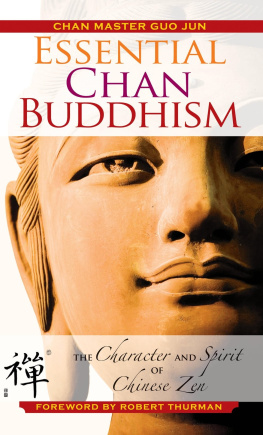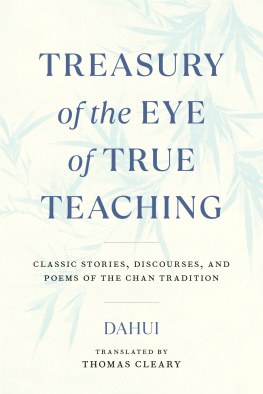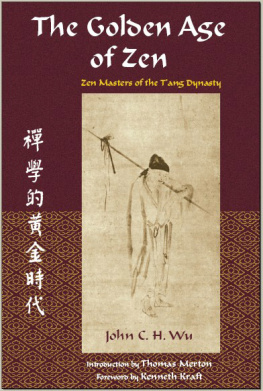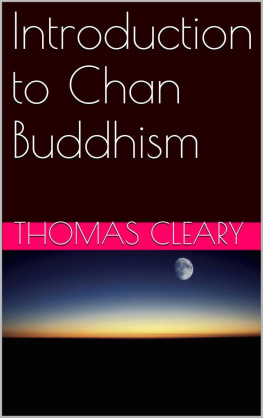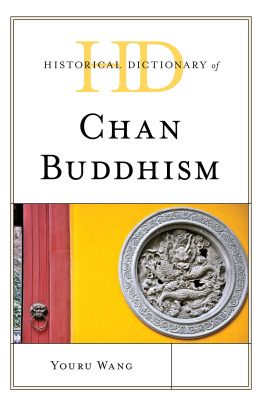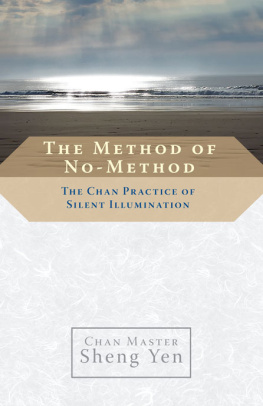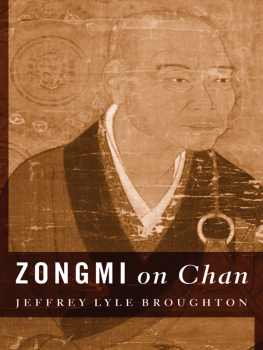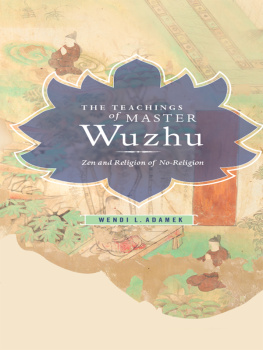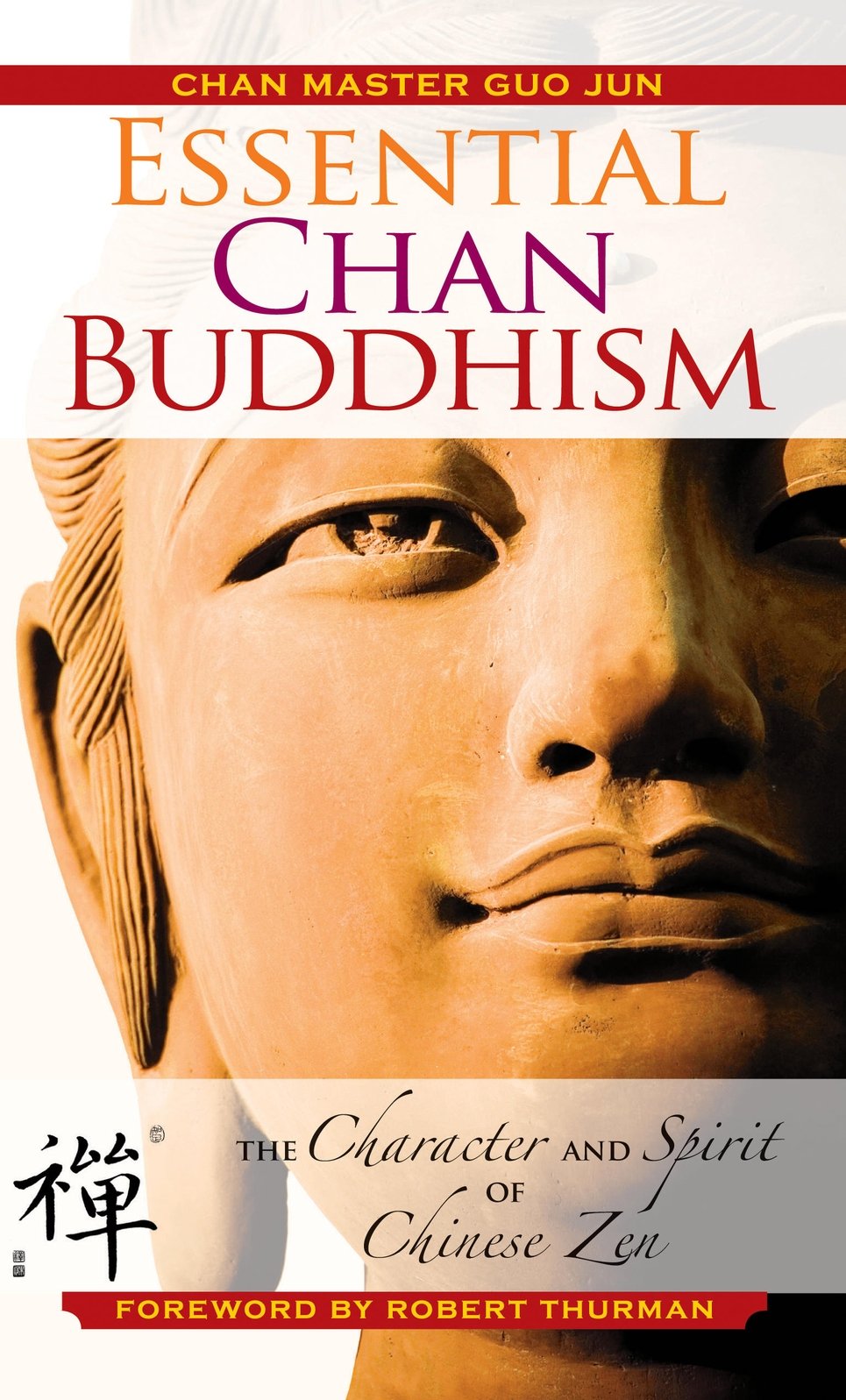
ACKNOWLEDGEMENTS
THERE ARE ALWAYS people, after my retreats, who ask me if I have a book. My reply in the past has always been no! Until now.
This book began when I went to Indonesia in 2007 to teach and then returned there in 2008, 2009, and 2010 to lead retreats.
My Indonesian students were very sincere, earnest, and gentle. They asked me about a book in 2010, and I told them it was too much trouble and I was too busy to think about it. Some time after the retreat, I received an e-mail. It seemed that a group of six volunteers had transcribed all my talks240 single-spaced pages (I guess I talked a lot). I was moved to tears by this gesture and it filled me with joy.
The transcription was done under the direction of Agus Santoso in Jogjakarta, who I first met in my teacher Sheng Yens retreat center in Pine Bush, New York. Agus suggested I contact Kenneth Wapner, who had developed and editedMaster Sheng Yens autobiography in English, Footprints in the Snow , to see if Kenneth thought the transcripts could be turned into a book. That is how Essential Chan Buddhism was born. Things come about when you least expect them.
This book is dedicated to all those who helped in Indonesia. Brothers Buntario and Selamat Tigris have been the force behind building the wonderful Sheng Yen Center in the lovely, forested hills outside Jakarta.
My deep thanks also go to Djemi Lim, Wiratna Sari Wiguna, Johanes Sungarda, Yuliana Yang, Eric Hermanto, and Hanley Tarsat. Without them there would be no book. Their dedication and initial belief in the project made it possible.
My thanks also go to the Ekayana Buddhist Center in Jakarta, who first invited me for a teaching tour and Bhante Aryamaitri and Bhante Dharmavimala.
I would also like to thank Paul Cohen of Monkfish Book Publishing for bringing Essential Chan Buddhism to Western readers. I know Master Sheng Yen would be pleased.
I could continue writing and thanking, but Id better stop. Peace to all.
Guo Jun Fashi
Sheng Yen Center, Indonesia
2011
ABOUT THE AUTHOR
CHAN MASTER GUO Jun was ordained as a novice monk at Mahabodhi Monastery, Singapore, under Venerable Master Song Nian and received his full monastic ordination at Guangde Monastery, Taiwan, under Venerable Master Jingxin, Venerable Master Liaozhong, and Venerable Master Guangyuan.
Dharma heir of Venerable Master Sheng Yen from Dharma Drum Mountain, Taiwan, and Venerable Master Qinyin from Fuhui Monastery, Taiwan, Venerable Guo Jun is the lineage holder and successor of the Chan (), Xianshou (), and Cien () schools of Chinese Buddhism. He has also studied and practiced in Thai, Burmese, Chinese Pure Land, Tibetan, Korean Son, and Japanese Shingon traditions.
Guo Jun was the deputy director of Dharma propagation at Singapore Buddhist Federation and abbot of Dharma Drum Retreat Center in Pine Bush, New York. He is a member of Australian Psychological Society; spiritual and guidingteacher of Chan Meditation Centre Australia, Chan Community Canada, and Dharmajala Indonesia; and abbot of Mahabodhi Monastery, Singapore.
Guo Jun has a diploma in biotechnology from Ngee Ann Polytechnic, Singapore; a degree in Buddhist philosophy from Fuyan Buddhist Institute, Taiwan; and a bachelor of arts in psychology and sociology from Monash University, Australia. He graduated with a masters degree in Buddhist studies at the University of Sydney, Australia.
Guo Jun is actively propagating the teachings and practices of Chinese Buddhism. He has taught in different parts of the world such as Australia, Canada, Europe, Indonesia, North America, and Singapore.
IMPERMANENCE
HOW LONG IS your life?
One day, the Buddha asked his disciples: How long is life?
Maybe fifty years? replied a disciple.
Wrong, said Buddha.
Another disciple said, Months.
No, Buddha said.
Days? Weeks? another disciple suggested.
Wrong. Wrong, said Buddha. Not years, not months, not weeks, not days.
Then they asked: How long is our life?
Our life is only as long as one breath.
TIGERS AND PUSSYCATS
I STARTED LEARNING Buddhism in 1987, when I was fourteen years old. I went on my first seven-day Chan retreat at seventeen. I did other retreats of varying lengths when I was in my teens and early twenties. My parents were simple people, expatriate Chinese living in Singapore. I was training to be a genetic engineer, but Buddhism called to me.
My head was shaved by Master Song Nian at Singapores Mahabodhi Monastery on Easter day in 1997. I did sutra studies at Taiwans Buddhist Institute. After that, I wanted to experience different forms of Chan practice and I wanted to test myself. So in 1999 and 2000 I went on three-month intensive summer and winter retreats at Korean Son monasteries in Seoul and Gwangju. Son, the Korean form of Chan or Zen, had a reputation for being very rigorous. That was what I wanted, and I was not disappointed.
The daily schedule was brutal. We woke at 3:00 AM and finished at 11:00 PM. We had only fifteenminutes each for breakfast, lunch, and dinner. Toilet breaks were five minutes, but the toilet was far from the meditation hall. We had no time, so we just went outside to shoot. For ninety days we did not take a shower. We had a basin of water that was filled from a bamboo pipe that ran down from the mountain and used a towel to scrub ourselves clean.
No break time, no time to relax, no nap after lunch. Sleeping after 11:00. Waking at 3:00. Most of us did not even have a room. We sat in the meditation hall on a folded-up cushions, which were also our beds. Each sitting was at least an hour, and we had to sit in full lotus. No movement was tolerated. If the monitors, who were senior monks, saw us move an inch, theyd hit us with the incense stick. In the morning, after waking, we had to do 108 prostrations in only ten minutes. Up and down, up and down. It looked like we were doing jumping jacks.
The Korean terminology for this kind of intensive retreat is Kyol Che , which means very tight dharma. You have to be very fast, very precise, always in the moment. There is no time to think, wander off, and daydream. If you fall behind, you get hit. There is nothing symbolic about these blows. Thwack! You dare not whimper or cringe. They punch and kick you, and you have to bow and gently say, thank you. In Korean.
And then there is pain, so much pain. Tears rolldown from your eyes the moment you move your legs as you come out of the full lotus. There is so much pain that you dont know where the pain is coming from. You try to massage your muscles, but its not the muscles. The pain goes into the bone. At the end of the day you are so tired you cannot move or stand up. You crawl to bed.
And then the food. Kimchi all the time, kimchi and white rice. The kimchi smelled like rotten eggs. It was repulsive, almost unbearable. It made me gag, and I had to force down every bite. It was the only food, so you either ate it or starved! A piece of tofu was an extravagance. We ate tofu three or four times in ninety days. The rest of the time it was kimchi with black beans and a few sprouts.
For seven days and nights in the middle of the retreat we were subjected to what is called in Chinese yong men jin jing , which translates as great courageous diligence. This was an even more intensive practice than your run-of-the-mill Kyol Che . For seven days and nights we were not allowed to lie down. Twenty-four hours of continuous sitting practice for seven straight days. We learned how to sleep while sitting, but when you were caught dozing, you were hit. You learned to sleep without moving.

